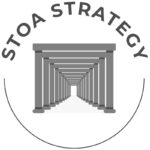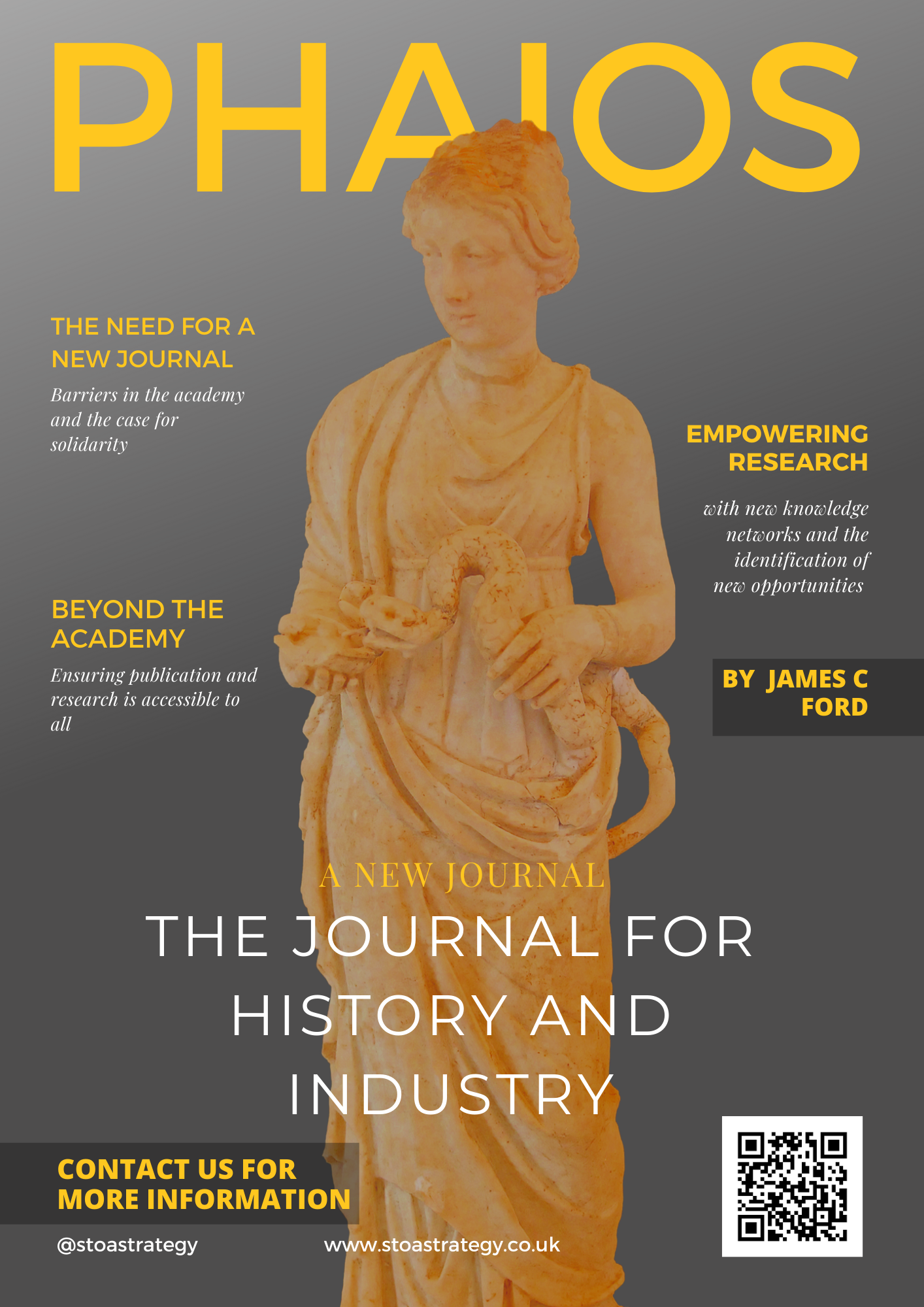Phaios: a new journal for transforming expertise
Phaios: the journal for history and industry is a new online, open peer-reviewed journal dedicated to empowering research beyond the Academy by publishing and reviewing historical research in non-standard formats, with a significant public benefit.


The need for a new journal
The stringent requirements of most academic journals act as a significant barrier to the participation of researchers working outside of the Academy. Researchers in full-time, secure work at a University are a tiny minority of the larger research community and they disproportionately represent the most advantaged groups. Researchers outside the academy are relatively more likely to be drawn from less advantaged groups, such as those marginalised due to their gender, disability, ethnicity, LGBT+ identities, or economic class. These researchers are generating employment opportunities elsewhere, but they face significant additional barriers in an academic-focussed publishing environment:
| Barrier | Consequence |
|---|---|
| Gatekeeping of submissions to those in secure, university positions to vet the unqualified | Exclusion of non-University-employed researchers |
| Requirement for a standard format as a ‘research article’ | Exclusion of other outputs such as organisational reports or audio-visual presentations of research |
| Unique formatting, grammar, and referencing requirements | Prohibitively lengthy process of reformatting required for non-standard research |
| Strict word limits and requirements | Exclusion of pre-produced research or requirement for extensive rewrites |
| Requirement to write for an audience of academics | Exclusion of research produced for a more general audience, or requirement for extensive rewrites |
| High cost of subscription to academic journals | Restricted access to own and others’ research without an institutional login |
| Prioritising of abstracted research over that with practical application | Priority given to academic research and exclusion of researchers writing for specific purpose or industry |
Although not all journals create these barriers and many of these are also burdens on those in secure, academic, University positions, these issues are characteristic of the industry and they disproportionately impact researchers outside the Academy or in insecure employment. Many of them are at base simple wealth barriers which are mitigated by University employment and exacerbated by additional barriers in obtaining research funding. Outside the University, researchers may not be paid at all for research, so each adjustment required of them costs them money, and this can be multiplied in energy and cost for those with disabilities or child-care responsibilities. Researchers without an institutional subscription may even find that they are contributing to a journal they do not have access to and to which they cannot afford to subscribe, which is exclusionary and disheartening.
Researchers working in industry who desire to publish their work with peer-review must start with the instructions and parameters of their professional client or workplace to produce research in their format and language, usually for a non-academic audience. This means that, unlike academic research which may be developed from the beginning as a standard academic format and even with a particular journal in mind, industry researchers must go to considerable energy to rework the research to meet stringent requirements of a journal (if this is even possible) before they submit. Researchers outside the academy also find it far more difficult to gain the support and comment of research peers – who exist in a largely closed academic network – in advance of submission, which reduces their chances of passing peer-review substantially.
Beyond the Academy
Researchers in every field are producing excellent, world-leading grey literature that fails to be peer-reviewed or published for reasons unrelated to the quality of work. This problem is getting worse, year on year, with the increasing numbers of qualified researchers and the rapidly diminishing viability of a career in the Academy due to precarity, job cuts, pension and other benefit reductions, and competition for roles far outstripping opportunities. While the works produced by researchers outside the Academy are often useful for the general public in shaping industry approaches, they may never be made accessible, and commonly either have private, limited, or no impact on the broader research community, in spite of increasing recognition of their importance. Equally, while Universities certainly facilitate the sharing of research, they rarely and reluctantly facilitate or recognise truly interdisciplinary work applied directly to solving real-world problems.
The need is clear for networks, infrastructure, and opportunities beyond the Academy. Stoa Strategy represents one attempt to build some: we are working on new models for the strategic deployment of research in various industries, utilising both individual talent and the collective energies and insights of new knowledge networks.
The journal aims to empower and platform marginalised researchers and research produced for campaigns or industry that has significant public benefit. It will do so by giving a new and open venue for research publications without the traditional roadblocks augmented through the creation of research networks, discussion, and the identification of research gaps and industry-led research opportunities.


